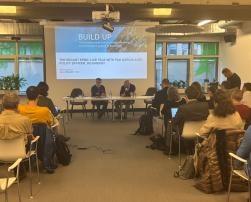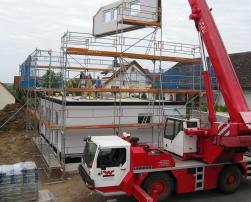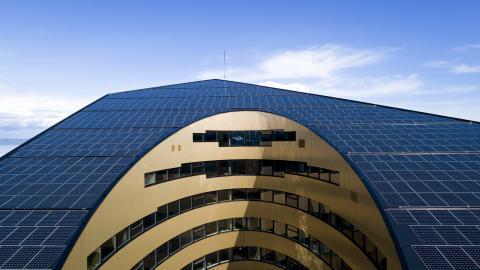Topic of the Month (May 2023)
Each month a relevant topic and several sub-topics are covered in detail. For the Topic of the Month, content following a common thread is developed by BUILD UP Editorial Board in collaboration with the Board of Ambassadors and other relevant experts in the field. This includes producing articles, case studies, webinars and more, all in line with the specific topic selected. Relevant events are also identified and highlighted.
Topics of the Month are announced at the end of the previous month in our website and newsletter. Please write us if you wish to know more about our upcoming topics of the month.

The implementation of the EPBD at the Member State level was the central theme of the BUILD UP Board of Ambassadors meeting recently held in Brussels. 'We can do it,' said Pau Garcia Audi, Policy Officer at DG ENER (European Commission), when talking about the 2050 decarbonisation objective.

This study develops a low-carbon production management model for construction firms using the Analytic Hierarchy Process (AHP) to address carbon emissions and provide practical guidance for a low-carbon transition in the industry.

The study highlights growing demand for Environmental Product Declarations (EPDs) in Germany’s building industry, driven by building certifications, EU regulations, and the need for life cycle assessments, with challenges in data availability and certification processes.

This paper analyses the climate resilience of social housing renovations in the Basque Country, emphasising the importance of passive and active measures to reduce heating demand, minimise overheating risks, and lower environmental impact, with potential savings in energy and CO2 emissions.

The new Construction Products Regulation modernises rules, enhances sustainability, boosts innovation, and introduces Digital Product Passports to improve efficiency and reduce waste in the EU construction sector.

The report highlights the benefits of offsite construction in the EU, including cost savings, efficiency, and sustainability, while also addressing challenges like skills shortages, regulatory barriers, and financing constraints.

This paper analyses 990 articles on digital technologies in sustainable construction, identifying key themes and future research directions to enhance sustainability in the field.

AI-driven design and digital twins are revolutionising construction by enhancing efficiency, sustainability, and collaboration, while success depends on integrating technology with skilled human expertise.

Concrete's environmental impact stems from high emissions, water use, biodiversity loss, and urban heat islands, but renewable energy, alternative clinkers, and carbon capture offer sustainable solutions.

A study on two Italian residential renovation projects highlights how Positive Energy Districts (PEDs) leverage energy efficiency, lifecycle assessments, and green certifications to promote sustainable urban development and energy self-sufficiency.
